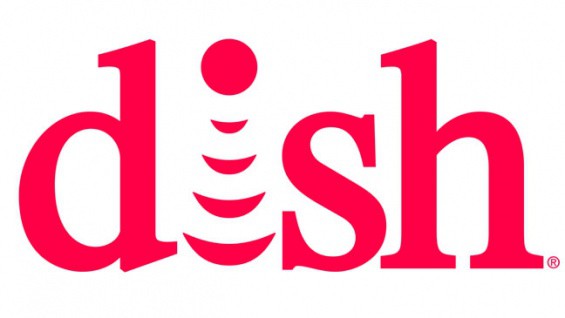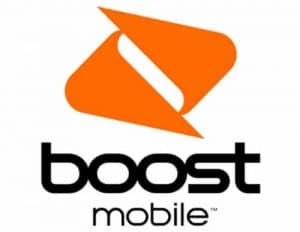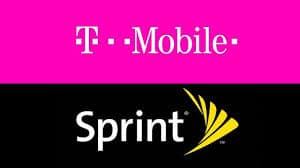 The merger of T-Mobile and Sprint would never have been approved by the Justice Department had Charles Ergen not promised to launch a new nationwide wireless competitor to protect competition. But now Ergen may be wavering over his commitment.
The merger of T-Mobile and Sprint would never have been approved by the Justice Department had Charles Ergen not promised to launch a new nationwide wireless competitor to protect competition. But now Ergen may be wavering over his commitment.
The founder of satellite TV company Dish Network had promised to spend nearly $10 billion to build a new 5G network capable of reaching 70 percent of the population by June 2023 as part of negotiations between T-Mobile, Sprint, and the federal government. But with the coronavirus pandemic shutting down the U.S. economy, the New York Post reports the company will have a difficult time finding the money to build that network.
“I think whatever rosy projections Charlie had are now very questionable,” said a source who expected to be part Dish’s lending group. “There is no financing to build a telecom network.”
Oddly, Ergen predicted just such a scenario in December when he testified to Dish’s ability to replace Sprint. In order to prove he was fit for the job, the 67-year-old media mogul showed off letters from three banks — Deutsche Bank, JPMorgan and Morgan Stanley — saying they would gladly fund his expensive network construction.
“Where the markets are today — if we don’t have another 9-11, God forbid — the banks are confident,” Ergen told the packed courtroom.
That testimony helped convince Manhattan federal judge Victor Marrero to approve T-Mobile’s $26 billion acquisition of Sprint, despite calls by a group of attorneys general, including Letitia James of New York, to block the deal, which they said would reduce competition and increase prices for consumers.
 Ergen’s commitment to build a new fourth national wireless carrier was crucial for T-Mobile and Sprint to win regulatory approval of their $26 billion merger, which will reduce the number of national wireless competitors to three. That merger secretly received help from the country’s chief antitrust enforcer, Makan Delrahim. The Trump-appointed regulator, who serves as the head of the Justice Department’s antitrust division, exchanged numerous text messages between himself and top executives of Sprint, T-Mobile, and Dish to help salvage a merger deal under heavy criticism from Democrats and consumer advocates. Delrahim signaled his approval of the merger if Dish promised to buy Sprint’s prepaid wireless brand Boost and was offered access to T-Mobile’s wireless network to help launch Dish Wireless as a new competitor. But executives from Sprint and T-Mobile repeatedly quarreled over the details of the merger with Ergen, forcing Delrahim to intervene and bring the parties together to smooth things over.
Ergen’s commitment to build a new fourth national wireless carrier was crucial for T-Mobile and Sprint to win regulatory approval of their $26 billion merger, which will reduce the number of national wireless competitors to three. That merger secretly received help from the country’s chief antitrust enforcer, Makan Delrahim. The Trump-appointed regulator, who serves as the head of the Justice Department’s antitrust division, exchanged numerous text messages between himself and top executives of Sprint, T-Mobile, and Dish to help salvage a merger deal under heavy criticism from Democrats and consumer advocates. Delrahim signaled his approval of the merger if Dish promised to buy Sprint’s prepaid wireless brand Boost and was offered access to T-Mobile’s wireless network to help launch Dish Wireless as a new competitor. But executives from Sprint and T-Mobile repeatedly quarreled over the details of the merger with Ergen, forcing Delrahim to intervene and bring the parties together to smooth things over.
Several consumer advocates and state attorneys general questioned the merger and Ergen’s commitment and capacity to serve as a new competitor. Ergen has warehoused wireless spectrum for years and has yet to meaningfully deploy it, deal critics contend. Additionally, Dish Wireless will be unlikely to achieve the scale and size of Sprint, the wireless carrier absorbed by the merger. That could mean it would be unable to deter anti-competitive behavior by the three larger companies — AT&T, Verizon, and the New T-Mobile. The most skeptical suggest Ergen has no intention of constructing a network for Dish Wireless. Instead, they contend he quietly intends to sell the wireless operation and potentially sweeten the deal by including Dish’s satellite TV business, its existing portfolio of unused wireless spectrum, or both.
If Ergen cannot meet the 2023 deadline, regulators could fine his company $2 billion and force it to relinquish the $12 billion worth of wireless spectrum Dish Network has been warehousing for years.
To succeed, Ergen will need Wall Street banks to cooperate and continue extending Dish Wireless credit. He will also need to find capable engineers ready to place 5G infrastructure on thousands of cell towers at the same time other wireless providers are building 5G networks of their own. None of this will be possible until the coronavirus crisis abates and the economy recovers. Despite this, some analysts are willing to still give Ergen the benefit of the doubt.
“Two months of severe market uncertainty doesn’t really alter my view of a company to execute on a three-year plan,” Lightshed Partners Analyst Walt Piecyk told The Post, saying it is too soon to question if Ergen will meet the deadline.
Ergen may also be able to convince regulators to approve a delay, pushing out the deadline. Assuming Ergen closes the deal to acquire Boost Mobile, which currently relies on Sprint’s 4G network to service its prepaid wireless customers, Boost will likely be rechristened Dish Wireless and serve as Ergen’s contribution to a competitive wireless industry until his own network gets off the ground.


 Subscribe
Subscribe NEW YORK (Reuters) – Charter Communications submitted a proposal to the Justice Department to buy telecom assets being sold under the T-Mobile US and Sprint Corp combination, but never heard back from the agency, three sources familiar with the matter said.
NEW YORK (Reuters) – Charter Communications submitted a proposal to the Justice Department to buy telecom assets being sold under the T-Mobile US and Sprint Corp combination, but never heard back from the agency, three sources familiar with the matter said. Regulators in the Trump Administration’s Justice Department claim shaving assets from a super-sized T-Mobile will preserve the competition that will be lost when Sprint becomes a part of T-Mobile. But Dish will emerge as a miniscule player with only a fraction of the 100+ million customers that AT&T and Verizon have, and at least 80 million customers signed with T-Mobile. One of the core arguments T-Mobile and Sprint made in favor of their merger was that each was too small to afford to deploy 5G service quickly and efficiently. Dish will have even less money to build out a basic 4G wireless network.
Regulators in the Trump Administration’s Justice Department claim shaving assets from a super-sized T-Mobile will preserve the competition that will be lost when Sprint becomes a part of T-Mobile. But Dish will emerge as a miniscule player with only a fraction of the 100+ million customers that AT&T and Verizon have, and at least 80 million customers signed with T-Mobile. One of the core arguments T-Mobile and Sprint made in favor of their merger was that each was too small to afford to deploy 5G service quickly and efficiently. Dish will have even less money to build out a basic 4G wireless network. WASHINGTON (Reuters) – The U.S. Justice Department would sue to block the merger of T-Mobile US Inc and Sprint Corp if the parties do not settle next week, CNBC reported on Thursday, citing sources.
WASHINGTON (Reuters) – The U.S. Justice Department would sue to block the merger of T-Mobile US Inc and Sprint Corp if the parties do not settle next week, CNBC reported on Thursday, citing sources.